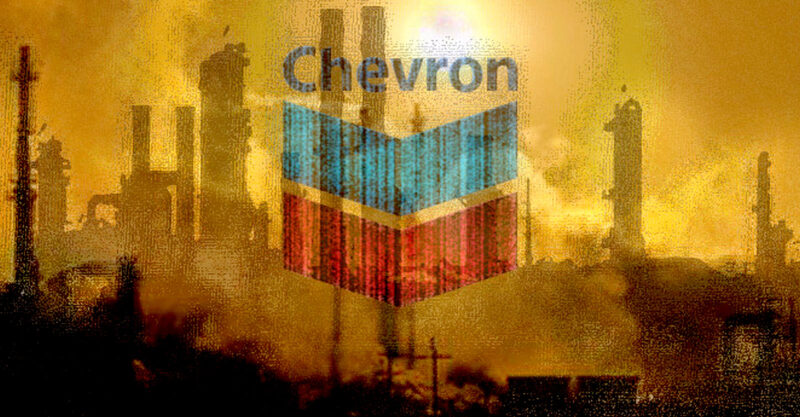by Sharon Lerner, Childrens Health Defense:

The U.S. Environmental Protection Agency has green-lighted the creation of fuel from discarded plastics as a “climate-friendly” alternative to petroleum. But according to a new report by ProPublica and The Guardian, the production of one of the fuels could emit air pollution so toxic that 1 out of 4 people exposed to it over a lifetime could get cancer.
TRUTH LIVES on at https://sgtreport.tv/
The U.S. Environmental Protection Agency (EPA) recently gave a Chevron refinery the green light to create fuel from discarded plastics as part of a “climate-friendly” initiative to boost alternatives to petroleum.
But, according to agency records obtained by ProPublica and The Guardian, the production of one of the fuels could emit air pollution that is so toxic, 1 out of 4 people exposed to it over a lifetime could get cancer.
“That kind of risk is obscene,” said Linda Birnbaum, former head of the National Institute of Environmental Health Sciences. “You can’t let that get out.”
That risk is 250,000 times greater than the level usually considered acceptable by the EPA division that approves new chemicals. Chevron hasn’t started making this jet fuel yet, the EPA said.
When the company does, the cancer burden will disproportionately fall on people who have low incomes and are Black because of the population that lives within 3 miles of the refinery in Pascagoula, Mississippi.
ProPublica and The Guardian asked Maria Doa, a scientist who worked at the EPA for 30 years, to review the document laying out the risk.
Doa, who once ran the division that managed the risks posed by chemicals, was so alarmed by the cancer threat that she initially assumed it was a typographical error.
“EPA should not allow these risks in Pascagoula or anywhere,” said Doa, who now is the senior director of chemical policy at Environmental Defense Fund.
In response to questions from ProPublica and The Guardian, an EPA spokesperson wrote that the agency’s lifetime cancer risk calculation is “a very conservative estimate with ‘high uncertainty,’” meaning the government erred on the side of caution in calculating such a high risk.
Under federal law, the EPA can’t approve new chemicals with serious health or environmental risks unless it comes up with ways to minimize the dangers. And if the EPA is unsure, the law allows the agency to order lab testing that would clarify the potential health and environmental harms.
In the case of these new plastic-based fuels, the agency didn’t do either of those things. In approving the jet fuel, the EPA didn’t require any lab tests, air monitoring or controls that would reduce the release of the cancer-causing pollutants or people’s exposure to them.
In January 2022, the EPA announced the initiative to streamline the approval of petroleum alternatives in what a press release called “part of the Biden-Harris Administration’s actions to confront the climate crisis.”
While the program cleared new fuels made from plants, it also signed off on fuels made from plastics even though they themselves are petroleum-based and contribute to the release of planet-warming greenhouse gases.
Although there’s no mention of discarded plastics in the press release or on the EPA website’s description of the program, an agency spokesperson told ProPublica and The Guardian that it allows them because the initiative also covers fuels made from waste.
Read More @ ChildrensHealthDefense.org



